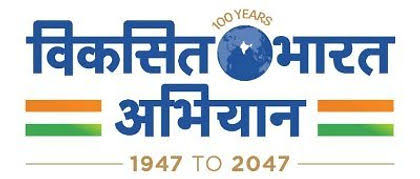Secretary Speaks

The continued existence of society depends upon the transmission of the culture to the young. Giving education to young means providing such experience to them which may help them grow physically, mentally and spiritually. It enhances human process as education…
How Rewards Systems Inspire Engagement Today
In our increasingly digital world, engaging users effectively remains a central challenge across industries, from gaming to education and e-commerce. Rewards systems, which have evolved from simple incentive programs to complex engagement mechanics, play a vital role in motivating behaviors and fostering loyalty. Understanding how these systems work, their psychological foundations, and their practical applications can help creators design experiences that genuinely resonate with users.
Table of Contents
- Introduction to Rewards Systems and Their Role in Modern Engagement
- Core Principles of Effective Rewards Systems
- Engagement Mechanics in Digital and Gaming Environments
- Case Study: Modern Illustration of Rewards Systems
- Designing Incentives for Long-Term Engagement
- Psychological and Behavioral Insights
- Challenges and Risks of Rewards Systems
- Future Trends in Rewards and Engagement
- Conclusion: Building Genuine Engagement Through Rewards
Introduction to Rewards Systems and Their Role in Modern Engagement
Rewards systems are structured frameworks designed to motivate and reinforce desired behaviors. Historically, they ranged from simple loyalty points in retail to complex digital incentives in gaming and online platforms. Their evolution reflects a deepening understanding of human motivation, shifting from extrinsic motivators like monetary rewards to intrinsic factors such as personal achievement and mastery.
Psychologically, rewards tap into the brain’s reward circuitry, particularly dopamine pathways, which are activated when expectations are met or surpassed. This neurochemical response reinforces behaviors, making users more likely to repeat actions that lead to positive outcomes. As a result, well-designed rewards can significantly influence user behavior and foster sustained engagement across diverse contexts.
How Rewards Influence User Behavior and Motivation
Effective rewards systems harness intrinsic and extrinsic motivators to create a balanced environment. For example, earning badges in educational apps taps into intrinsic motivation by providing a sense of achievement, while discounts or monetary bonuses serve as extrinsic motivators. When aligned properly, these rewards encourage continued participation, skill development, and loyalty.
Core Principles of Effective Rewards Systems
Reinforcement Theory and Its Application in Engagement Strategies
Reinforcement theory, rooted in behavioral psychology, suggests that behaviors followed by positive outcomes are more likely to recur. In digital environments, immediate feedback loops—such as earning points or unlocking new features—serve as reinforcement, encouraging users to continue engaging. For instance, a language learning app might unlock new levels after consistent daily practice, reinforcing the habit.
Types of Rewards: Extrinsic vs. Intrinsic
Extrinsic rewards include tangible incentives like cash, discounts, or virtual goods, while intrinsic rewards are driven by internal satisfaction, such as mastery, autonomy, and purpose. Effective systems often combine both to enhance engagement. For example, a fitness app might offer badges (intrinsic) and discounts on gear (extrinsic), motivating users through multiple channels.
The Importance of Timely and Meaningful Rewards
Timeliness enhances the perceived value of rewards. Immediate recognition, like instant feedback after completing a task, strengthens the behavioral link, while delayed rewards risk losing effectiveness. Additionally, rewards must be meaningful; generic incentives may fail to motivate. Personalization can significantly improve relevance and impact.
Engagement Mechanics in Digital and Gaming Environments
Gamification and Its Impact on User Retention
Gamification introduces game-like elements—points, levels, leaderboards—into non-game contexts to boost motivation. Platforms like Duolingo use streaks and achievement badges to encourage daily practice, significantly increasing user retention. Studies show that gamified systems can improve engagement by up to 60%, demonstrating their effectiveness in diverse domains.
The Role of Unpredictability and Surprise in Maintaining Interest
Incorporating elements of unpredictability—such as random bonus rounds or surprise rewards—keeps users curious and engaged. This taps into the psychological principle of variable rewards, which has been shown to sustain attention longer than consistent, predictable rewards. For example, loot boxes in gaming leverage this principle, creating excitement and anticipation.
Examples of Successful Engagement Mechanics in Popular Platforms
| Platform | Engagement Mechanic | Outcome |
|---|---|---|
| Duolingo | Streaks & Achievements | Increased daily active users |
| Fitbit | Progress badges & Leaderboards | Enhanced motivation and competition |
| Pokemon GO | Catch & Level Up Rewards | Sustained long-term engagement |
Case Study: Modern Illustration of Rewards Systems
Overview of Rewards Features in Pirots 4
While not the core focus here, Pirots 4 exemplifies the application of effective rewards principles. Its game mechanics incorporate visual cues like collector birds and surprise bonuses that motivate players through both strategic and aesthetic engagement. The game’s reward structure includes capped winnings and early round endings, which tap into the psychology of scarcity and urgency, encouraging players to stay invested.
Enhancing Engagement with Visual and Strategic Elements
Features like collector birds provide a visual reward that signals progress, while strategic choices—such as when to cash out—add layers of engagement. The retention of bonus progress across sessions fosters long-term involvement, aligning with the principle that personalized and meaningful rewards sustain interest.
Implications for Broader Reward Design
This example underscores how combining visual appeal with strategic depth, and balancing reward caps with early outcomes, can create compelling experiences. Such principles are adaptable across sectors, emphasizing that effective rewards are those that align with user psychology and promote ongoing participation.
The Design of Incentives to Sustain Engagement Over Time
Balancing Reward Frequency and Value
Overloading users with frequent, trivial rewards can lead to fatigue, while infrequent, high-value rewards may seem unattainable. Striking the right balance—such as providing small, regular incentives with occasional larger milestones—keeps users motivated without feeling overwhelmed.
Structuring Progression and Milestones
Progression systems, including levels, badges, and unlocking new features, provide clear goals. Setting achievable milestones fosters a sense of accomplishment and encourages continued effort, as seen in platforms like fitness apps or educational portals.
Personalization and Adaptive Rewards
Tailoring rewards based on user preferences and behaviors enhances relevance. Adaptive systems utilize data analytics and machine learning to adjust incentives dynamically, ensuring sustained interest across diverse user segments.
Psychological and Behavioral Insights Behind Effective Rewards
The Role of Dopamine and Reward Anticipation
Dopamine release is triggered not only by actual rewards but also by anticipation. This anticipation fuels motivation and can be harnessed through mechanisms like countdown timers or surprise elements, enhancing user engagement. This effect is well-documented in behavioral neuroscience, emphasizing the importance of managing expectations.
Avoiding the “Addiction Trap” and Ethical Design
While rewards can be powerful motivators, ethical considerations are paramount. Excessively manipulative designs risk fostering harmful addiction or mistrust. Transparency, fairness, and respect for user autonomy are essential to maintain integrity and long-term engagement.
Adapting Rewards Based on User Feedback
Listening to user feedback helps refine reward mechanisms, making them more effective and ethically sound. Regular updates and adjustments ensure that incentives remain motivating and aligned with user values.
Challenges and Risks of Rewards Systems in Engagement Strategies
Over-reliance on Extrinsic Motivators
Excessive dependence on external rewards can undermine intrinsic motivation, leading to a decline in genuine interest once incentives are removed. For example, gamification that relies solely on points may diminish internal satisfaction over time.
Manipulation and User Mistrust
Opaque or manipulative reward mechanisms risk eroding trust. Transparency about how rewards are earned and distributed is crucial to prevent perceptions of unfairness and maintain user confidence.
Ensuring Fairness and Transparency
Designing reward systems with clear rules and equitable distribution fosters a positive perception. Fairness encourages continued participation and reduces the likelihood of user frustration or disengagement.
Future Trends in Rewards Systems and Engagement
Integration of Emerging Technologies
Augmented Reality (AR), Virtual Reality (VR), and Artificial Intelligence (AI) are opening new frontiers for immersive rewards. Imagine AR-based scavenger hunts or personalized virtual environments that adapt to user preferences, elevating engagement to new levels.
Personalization Through Data Analytics and Machine Learning
Leveraging user data enables dynamic reward systems that respond to individual behaviors, preferences, and progress. This adaptive approach enhances relevance and sustains motivation over time.
Ethical Considerations and Sustainable Engagement Models
As rewards grow more sophisticated, ethical frameworks are essential to prevent manipulation and ensure user well-being. Transparent, user-centric designs will define the future of sustainable engagement systems.
Conclusion: Crafting Rewards Systems that Inspire Genuine Engagement
In summary, effective rewards systems are built on principles of psychological insight, strategic design, and ethical integrity. They should align with user values, fostering a sense of achievement and belonging rather than mere transactional exchanges. The example of modern platforms, including innovative games like Pirots 4, demonstrates how combining visual appeal, strategic depth, and personalized incentives can create compelling experiences.
“Genuine engagement isn
Principal Speaks

Dr. Sarvapalli Radha krishnan said, “Education is the enlightenment of soul that dispels ignorance and illuminates the individual”. To quote Kofi Annan, a Nobel Peace Prize Laureate, “Education is the premise of progress, in every society, in every family”. DAV…



